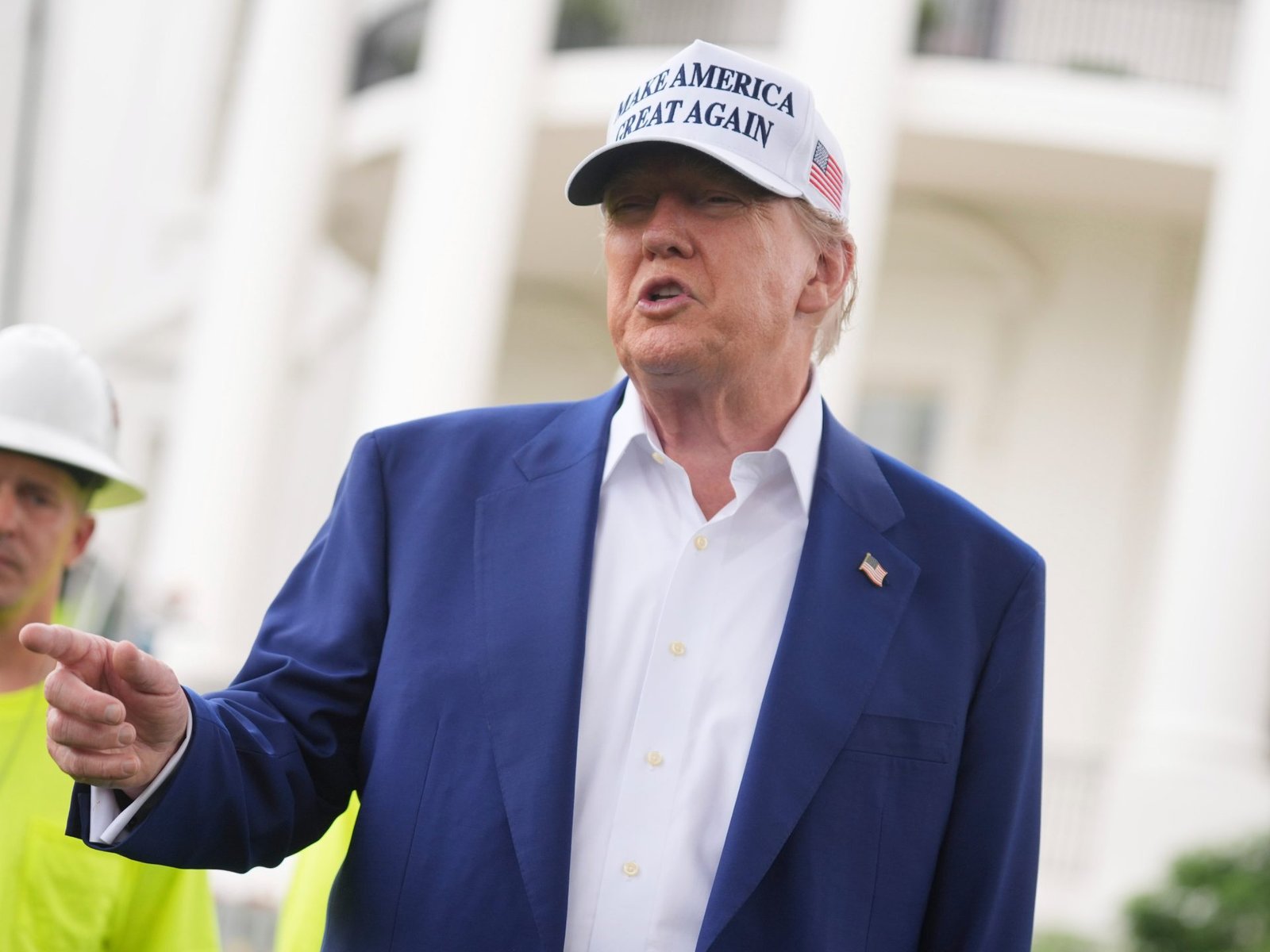In the midst of escalating tensions between Israel and Iran, President Donald Trump has sent ambiguous signals regarding the potential for U.S. military intervention. Following six days of intense bombardment, Trump faced inquiries about whether the U.S. would assist Israel in targeting Iran’s nuclear capabilities.
On a notable Wednesday morning at the White House lawn, Trump unveiled two imposing flagpoles standing 88 feet tall each. However, this appearance was overshadowed by pressing questions about the ongoing Middle East conflict. When asked if the U.S. might participate in strikes against Iran, Trump stated, “You don’t know what I’m going to do. I may do it. I may not do it.” He emphasized Iran’s current struggles, suggesting they were open to negotiation.
As he posed with the Juventus football team in the Oval Office, Trump reiterated that no decision had been finalized, preferring to wait until the last minute. “I like to make a final decision one second before it’s due,” he remarked, highlighting the fluid nature of wartime situations.
This uncertainty has not only fueled doubt within the conflict itself but has also sparked controversy back home, as some Republicans and Democrats seek to limit Trump’s military options regarding Iran. Conservative commentator Tucker Carlson recently engaged with Senator Ted Cruz on the issue, debating whether the U.S. should advocate for regime change in Iran. Trump, when questioned about their conversation, expressed a desire to avoid conflict, yet acknowledged the difficult choices posed by Iran’s potential nuclear threat.
Defense Secretary Pete Hegseth assured Congress that the U.S. military is prepared should the need arise, stating, “President Trump’s word means something, and we are ready with options.”
Concerns Over Iran’s Nuclear Aspirations
Trump has consistently maintained that the current conflict could have been avoided if Iran had accepted U.S. terms to limit its nuclear program. Despite ongoing discussions since April regarding uranium enrichment—critical to nuclear weaponization—Iran insists its nuclear activities are purely for peaceful energy use. Trump warns that allowing Iran to acquire a nuclear weapon would have catastrophic repercussions globally, claiming they are nearing the capability to do so.
While Trump cites intelligence suggesting imminent threats from Iran, his own Director of National Intelligence, Tulsi Gabbard, recently contradicted this notion, testifying that Iran is not developing nuclear weapons. Critics argue Trump’s statements may be laying the groundwork for U.S. involvement in the Israel-Iran conflict, a point echoed by Israel in justifying their recent military actions.
Negotiation Breakdown
The situation further deteriorated following Israel’s strike on June 13, which halted ongoing U.S.-Iran negotiations and led to mutual missile exchanges. Scheduled talks were canceled amidst reports of casualties, including Iranian military leaders and officials, in the assaults. Trump openly criticized Iran for failing to meet negotiation deadlines, voicing his frustration over the loss of life in the absence of dialogue.
Despite Iran’s military responses, Trump revealed that Iranian officials had reached out for talks, although he deemed the timing too late. His recent remarks have raised concerns over the conflict escalating into a regional war, particularly after suggesting he might target Iran’s Supreme Leader, Ali Khamenei.
In reaction to Trump’s direct approach, Iranian Deputy Foreign Minister Majid Takht-Ravanchi asserted that Iran would not yield to threats and would defend its sovereignty against any U.S. aggression. Meanwhile, Khamenei warned that U.S. involvement would result in “serious irreparable consequences.”
Trump’s Vision for Resolution
On the White House lawn, Trump conveyed his perspective on how the conflict should end, reiterating his demand for “unconditional surrender” from Iran. He linked this demand to dismantling their nuclear capabilities, blaming Iran for the hostilities. “For 40 years, they’ve promoted hostility towards America and Israel. They were bullies, and that era is coming to an end,” he insisted.
As he indicated a preference for a straightforward resolution centered on ensuring Iran does not acquire nuclear arms, Trump raised the prospect of significant developments in the week ahead, though specifics remained undisclosed. Reports indicate a tragic rise in casualties in Iran, with the death toll now at 240, including many women and children.

